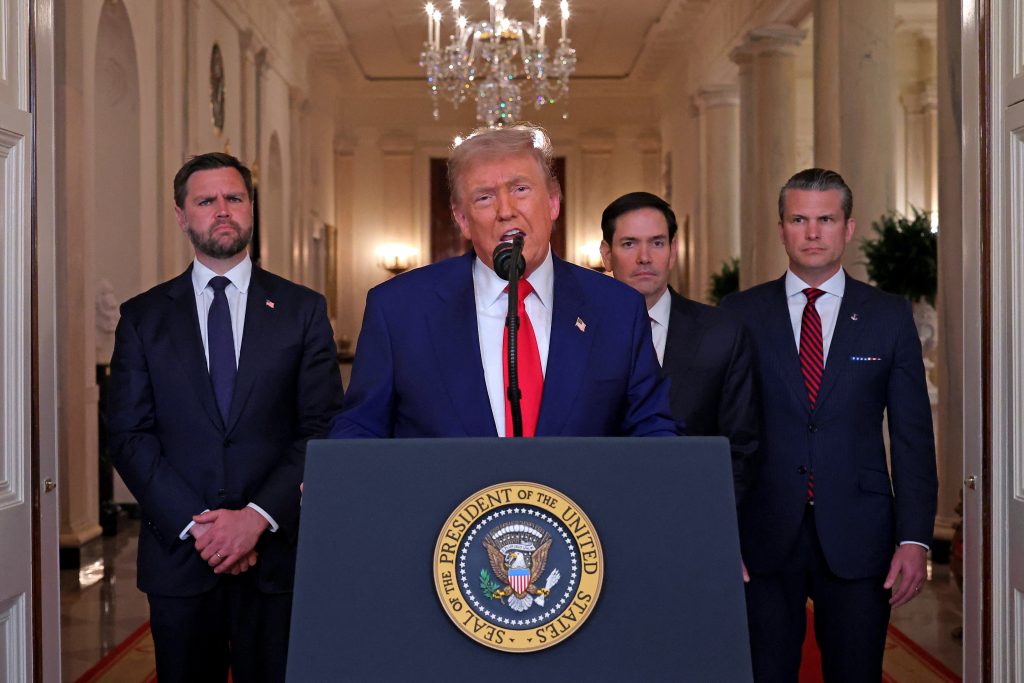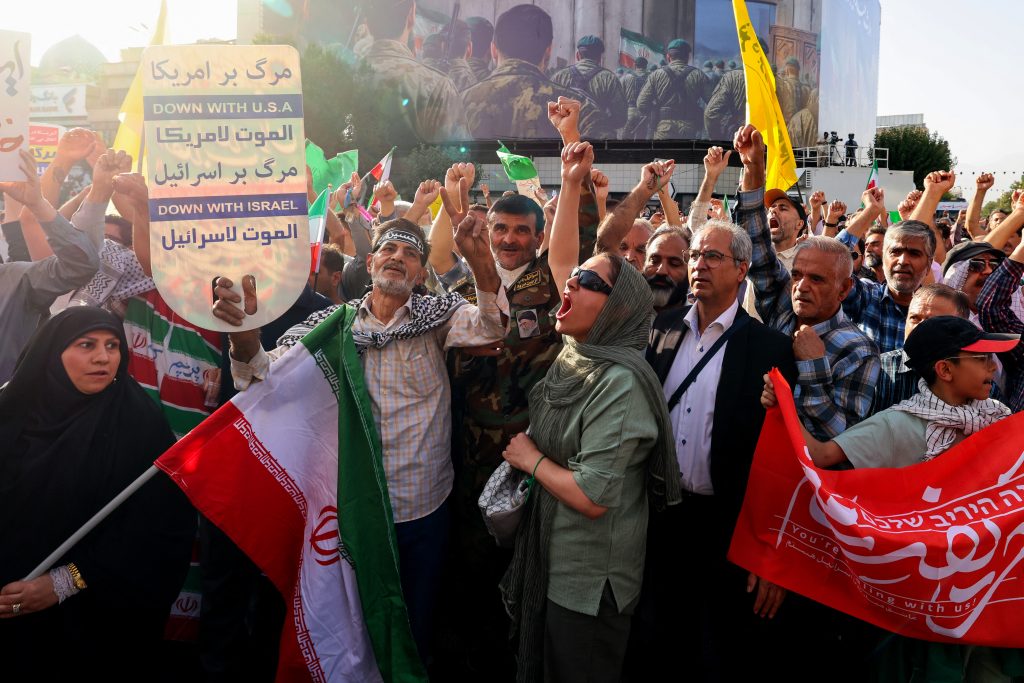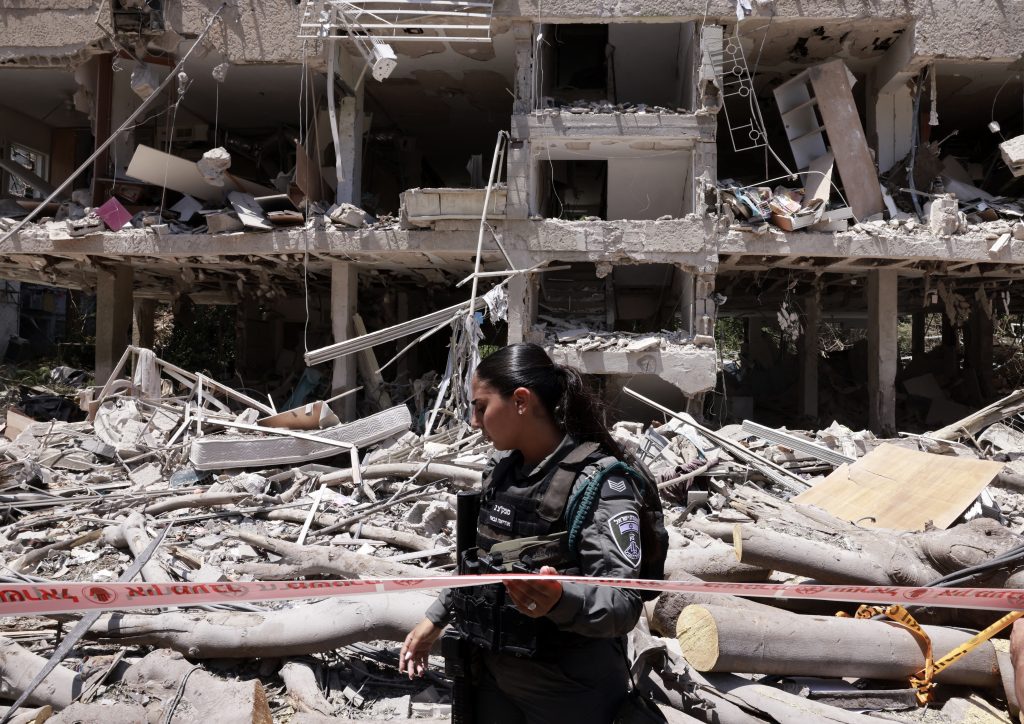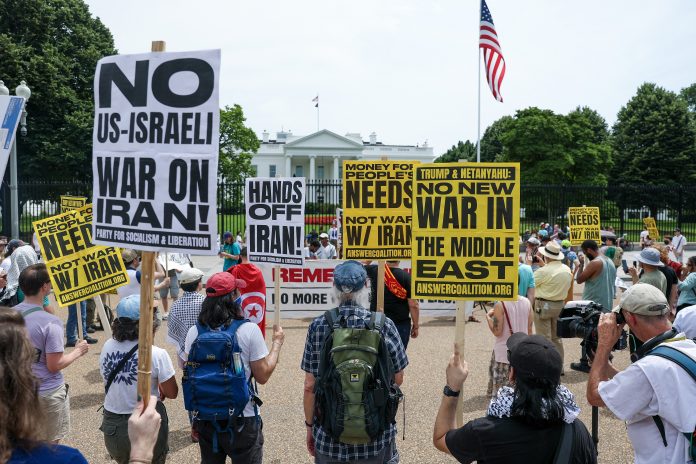Global tensions surged after the United States launched air strikes on three Iranian nuclear facilities over the weekend, prompting widespread condemnation and warnings of further regional destabilization across the Middle East and Asia.
US President Donald Trump confirmed the attack in a post on Truth Social, saying, “We have successfully completed our attack on the three nuclear sites in Iran, including Fordow, Natanz, and Esfahan.”
The strikes mark a major escalation in the ongoing conflict between Israel and Iran, with Washington now formally entering the fray on the side of its ally.
Trump’s decision to launch the strikes without seeking prior approval from Congress has sparked a wave of criticism in the United States.

Lawmakers, including members of his own Republican Party, warned that the unilateral action not only sidesteps constitutional checks and balances but also places American lives at risk.
Senate Democratic Whip Dick Durbin said the bombing “puts the US on the brink of a wider war in the Middle East, all without constitutionally required Congressional approval.”
Representative Thomas Massie, a Republican, called for a vote, asserting that any military action against Iran must be authorized by Congress.
As military escalation intensifies, questions grow over the legality of the strike and its implications for both regional stability and the safety of American personnel deployed across the Middle East.
In response to the US intervention, Iran’s Foreign Minister said the United States and Israel had “crossed a very big red line” and warned that Tehran would defend itself “by all means necessary.”
Iran’s Supreme Leader Ayatollah Ali Khamenei vowed to punish “the Zionist enemy,” while the Islamic Revolutionary Guard Corps (Pasdaran) threatened “eternal consequences.”
The attack drew strong criticism from major powers, including China and Russia, as well as regional actors.
In a statement released Sunday, China’s foreign ministry said it “strongly condemns” the US air strikes, warning that they “escalate tensions in the Middle East.”
The statement further urged “all parties to the conflict, especially Israel, to cease fire as soon as possible.”
Indian Prime Minister Narendra Modi also expressed “deep concern at the recent escalations” during a phone call with Iranian President Masoud Pezeshkian, emphasizing the need for “immediate de-escalation, dialogue and diplomacy as the way forward and for early restoration of regional peace, security and stability.”
North Korea on Monday condemned the United States’ strikes on Iran, calling them a violation of the United Nations Charter and accusing Israel of fueling instability in the region.
A spokesperson for the North Korean foreign ministry said the Democratic People’s Republic of Korea “strongly denounces the attack on Iran by the US which severely violated the UN Charter with respect for sovereignty.”
The statement blamed the escalating conflict in the Middle East on what it described as the “reckless valor of Israel.”
Pope renews appeal for peace
Pope Leo XIV joined global calls for restraint, delivering a strong message during his Sunday Angelus address.
“Let diplomacy silence the weapons! Let the Nations map out their future with works of peace, not with violence and bloody conflicts!” the pontiff said.
He warned that the use of armed force signals the collapse of dialogue and breeds long-term wounds that no military victory can justify.
“War does not solve problems,” the pope said. “It amplifies them and produces deep wounds in the history of peoples, which take generations to heal.”
Pope Leo reminded the international community that “there are no ‘distant’ conflicts when human dignity is at stake,” and said the suffering in places like Gaza must not be forgotten.

UN urges ceasefire, warns of wider war
Speaking before the UN Security Council in an emergency session, Secretary-General António Guterres said the US bombing campaign marked “a perilous turn” in the conflict.
He warned that the world is at risk of “descending into a cycle of retaliation” that could severely damage the international order.
Guterres urged member states to act decisively to halt hostilities and push for a return to sustained talks over Iran’s nuclear program.
He said the people of the Middle East “cannot endure yet another cycle of destruction,” and called on Iran to fully uphold its commitments under the Non-Proliferation Treaty.
“There are two paths,” Guterres said. “One leads to de-escalation, diplomacy, and dialogue. The other leads to deeper human suffering and a wider war.”
Nuclear safety concerns mount
Rafael Grossi, Director General of the International Atomic Energy Agency (IAEA), warned that the strikes had severely compromised nuclear safety.
He confirmed that Iran’s Natanz facility suffered extensive damage, including to key power systems and underground halls containing uranium materials.
Grossi said that while no radiation leaks had been reported so far, the situation remained volatile. He raised alarm over the potential for chemical contamination and the heightened risk to Iran’s operational nuclear plant at Bushehr.
“The risk is real,” he said, warning that a strike on Bushehr could result in a regional radiation disaster. He called for restraint and offered IAEA assistance in securing damaged nuclear sites.

No military solution, says UN political affairs chief
Miroslav Jenča, UN Assistant Secretary-General for Political Affairs, called the US air strikes “a dangerous moment” for the region.
He confirmed via satellite imagery and official reports that tunnels and buildings at Iran’s Fordow site had also been hit.
Jenča emphasized that “there is no military solution” to the conflict and warned that the region could be “engulfed in further instability and volatility.”
He reported that over 430 people have been killed in Iran since the hostilities began, the majority of whom were civilians. In Israel, at least 25 deaths and more than 1,300 injuries have been recorded.
He also warned of the growing threat from armed non-State actors, such as the Houthis in Yemen, whose potential involvement could further widen the war.
He noted that Iran’s parliament had expressed support for closing the Strait of Hormuz, a key global shipping lane.
“The world will not be spared from the ramifications of this dangerous conflict,” Jenča said, urging all nations to act in line with international law and the UN Charter.
Missile exchanges continue as global leaders issue calls for calm and urge a return to diplomacy, amid growing concern that recent US actions have further escalated the conflict.









